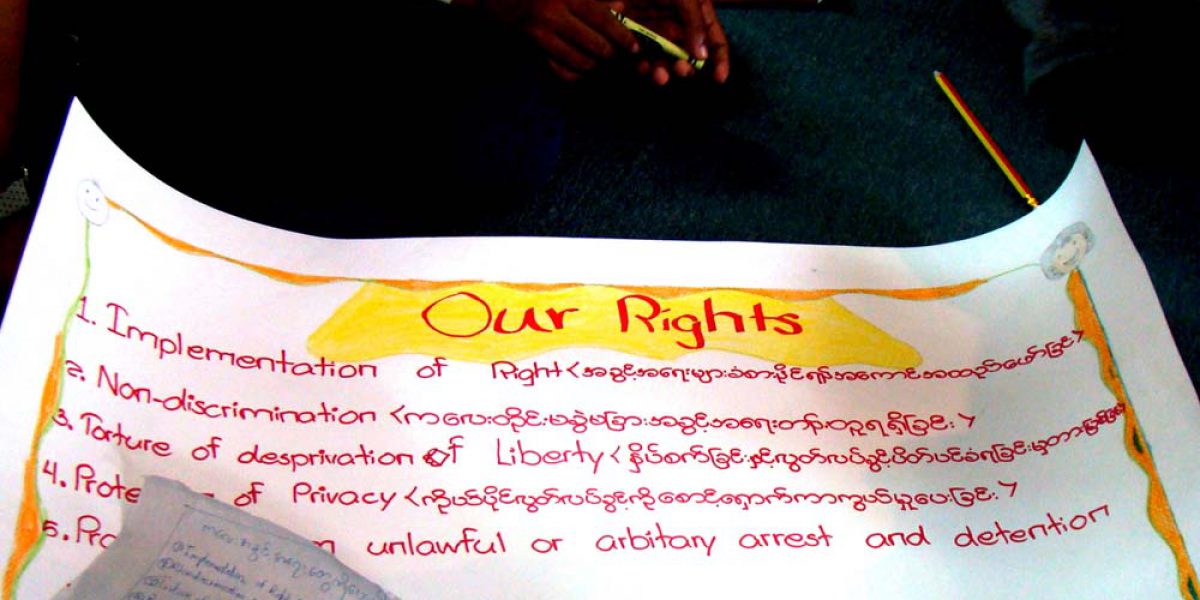Thailand: The day all children are equal
14 December 2012| Kohnwilai Teppunkoonngam

Bangkok, 14 December, 2012 — The upcoming 18th of December will mark International Migrants Day, less than one month after Universal Children’s Day on November 20th.
Universal Children’s day is globally commemorated to celebrate the importance of children, who are perceived on this day as children not only of their own parents, communities, and countries, but as children of the everyone, every state, and of the world.
Meanwhile, International Migrant’s Day celebrates the day that the United Nations General Assembly adopted the International Convention on the Protection of the Rights of All Migrant Workers and Members of Their Families.
Migrant children are the interlinking population that falls under the lens of both days. They face compounding vulnerabilities due to the fact that they are migrants and children: they have left their original homes behind, and they frequently face precarious legal status in their new situation.
Today reminds us the challenges of realising international human rights of migrant workers and their families, including their children. There are only 46 countries party to the Convention on the Protection of the Rights of All Migrants Workers and Members of Their Families, not including Thailand.
It is equally important to remind ourselves that only two countries worldwide— Somalia and the United States— are not party to the Convention on the Rights of the Child (CRC) which belongs to all children in this world, including migrant children.
Despite the international character of children, violations of children’s rights are daily and commonplace around the world. Some children are sent out of school to work in the very young age; some have to accompany their families and are unable to access public services; others are denied birth registration, and lose their nationalities, forcing them to live without any form of protection.
In Thailand, similar kinds of violations happen to forced and voluntary migrant children more frequently than to Thai children. Often times, the problems come in form of practice. For example, during disasters like the 2011 floods, migrant children were forgotten in the humanitarian response.
Most migrant mothers with newborn babies were not able to access relief items such as milk powder, which was provided by the local authorities and communities to most Thai children in the affected areas, according to the post-flood interview conducted in Prathum Thani during April – May 2012, under JRS post-floods assistance to migrant workers project.
On the other hand, sometime the problems originate from the legislation level. Although Thailand is party to the CRC, it has made a reservation on Article 22, on respecting the right to refugee status of ‘refugee and asylum children’, as well as Article 29 (C) that guarantees the cultural rights in education of ‘children in different cultural identities, languages and values’, affecting the lack in national legislation protecting and fulfilling the rights of these groups of children respectively.
In some cases, the problems occur because of the gaps and the technicality in national law. Article 37 of CRC guarantees the right to liberty of children, as well as the right to the protection from arbitrary and unlawful arrest and detention. But refugee, asylum and other irregular migrant children in Bangkok— and other migrant populated provinces— are often put into detention in violation of these rights.
This is due to the fact that there is not a provision recognizing these rights in the immigration law of Thailand, although there are some child protection elements in the criminal procedural law and the juvenile court procedural law of Thailand.
Amid these challenges, there has also been applauding progress in Thailand. Last year, Thailand withdrew the reservation to Article 7 of CRC guaranteeing the right to be registered at birth, the right to acquire a nationality, and as far as possible, the right to know and to be cared for by his/her parents.
Additionally, in the present Constitution of Thailand, Section 4 guarantees that the dignity, rights, liberty and equality of the people shall be protected and Section 82 provides that Thailand shall adopt the principle of non-discrimination and shall comply with human rights conventions in which it is party thereto.
Despite these developments, these are small steps in light of the challenges that need to be overcome in order to make the rights of the child applied equally to all children in Thailand.
In order to move towards the day that all children are equally important, including migrant children, Thailand needs to review all of its laws and ensure that they are not discriminating against particular children and include the rights protective measures for each and every child, “regardless of their nationalities and immigration status”.


